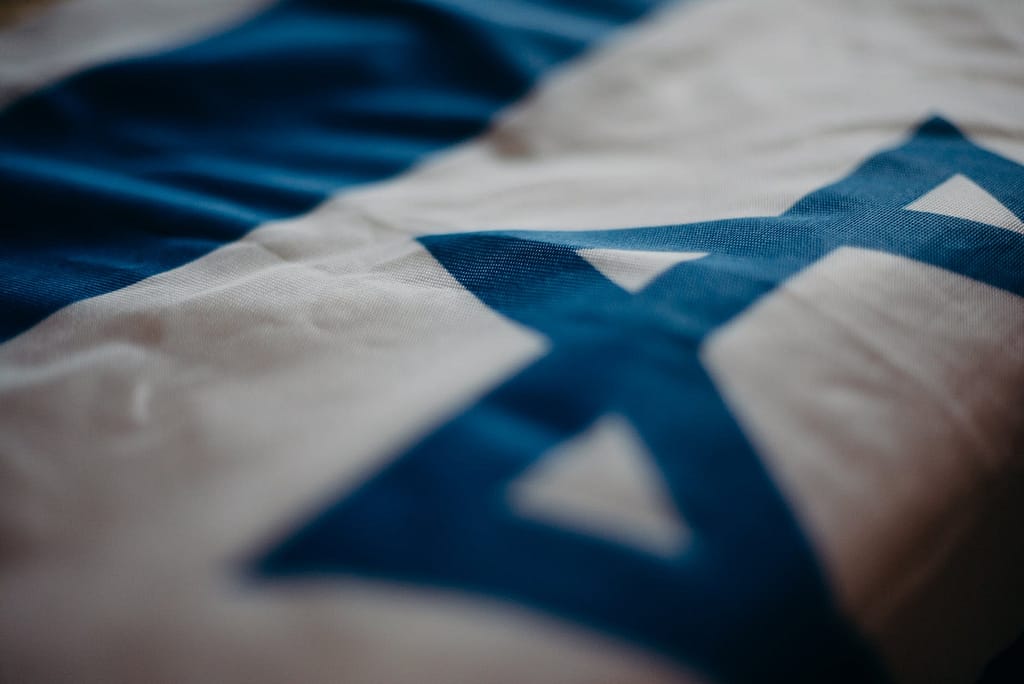God is referred to by numerous names throughout the Bible. Last, we learned about the name El Olam, the Everlasting God. Today, we will look into the name Jehovah Nissi, or The Lord is my Banner.
What does Jehovah Nissi mean?
Jehovah Nissi is translated from Hebrew as “The Lord is my Banner.” This term is made up from a combination of Jehovah, or Yahweh—our attempt at pronouncing YHWH, (a personal name for God in the Bible) and Nissi, (meaning Banner).
Where is Jehovah Nissi found in the Bible?
The name Jehovah, or Yahweh, Nissi (The Lord is my Banner) appears only once in the Bible, in Exodus 17. The Israelites crossed the Red Sea out of Egypt, just beginning their journey in the wilderness. Entirely unprovoked, the Amalekites (descendants of the grandson of Esau) attacked the vulnerable Israelites.
As Joshua and a chosen group of men fought the Amalekites, Moses, Aaron, and Hur (another Israelite, sometimes hypothesized to be Miriam’s husband or son) climbed to the top of an overlooking hill. Moses lifted his staff into the air, the same staff that he used to perform many miracles before in Egypt.
“As long as Moses held up his hands, the Israelites were winning, but whenever he lowered his hands, the Amalekites were winning. When Moses’ hands grew tired, they took a stone and put it under him and he sat on it. Aaron and Hur held his hands up—one on one side, one on the other—so that his hands remained steady till sunset. So Joshua overcame the Amalekite army with the sword.” (Exodus 17:10-13).
As you may remember, Moses worked as a shepherd for his father-in-law Jethro for 40 years, prior to leading the Israelites out of Egypt. Each shepherd has a staff: a long, slender stick with a curve on the end. The staff was the perfect tool to guide, pull, or nudge sheep or goats along their path (see Jehovah Rohi, the Lord is my Shepherd for more).
When Moses was first called by the LORD from the burning bush, he asked God what he should do if the Israelites did not believe him. The LORD said to him, “What is that in your hand?” “A staff,” he replied. (Exodus 4:2-3). The LORD showed Moses how to turn the staff into a snake, as a sign to the Israelites.
At the specific direction of the LORD, Moses used the staff to turn the Nile into blood. Aaron participated, stretching out his own staff. Later, as Pharaoh’s heart was still stubborn, the LORD instructed Moses to tell Aaron to strike the ground with his staff, and gnats blighted Egypt (Exodus 7-8). Over and over, Moses and Aaron utilized their shepherd’s staffs as tools for the supernatural power of the Almighty God.
This time, they utilized the staff as a banner. They held it high for all to see. The Israelites were not soldiers. However, the Amalekites had generations of experience as notoriously violent nomads. As with their escape from Egypt, God generously gave the Israelites an (otherwise impossible) victory.
“Moses built an alter and called it The LORD is my Banner. He said, “Because hands were lifted up against the throne of the LORD, the LORD will be at war against the Amalekites from generation to generation.” (Exodus 17:15).
What does Jehovah Nissi mean to us today?
What exactly is a banner? A banner is a long strip of cloth, plastic or paper, bearing symbols or lettering, hung in a public place, or carried in a demonstration. A flag, essentially. A country’s flag could indicate ownership of land. One may pledge their allegiance to a flag or banner. Of course, the allegiance isn’t actually to the piece of cloth itself, it is to what the banner symbolizes. You might fly a banner to display your favorite sports team, the politician that you hope wins an election, the list goes on. A banner is a message that is displayed publicly, loudly, for all to see.
This shepherd’s staff, held up by Moses, was not a magical tool. The victory had nothing to do with the staff itself. It was a symbol of the LORD’s power. It was a display, showing that the Israelites followed the one, true God. The LORD was their banner, Jehovah, or Yahweh, Nissi. Their allegiance was to Him, and He was the only reason for their miraculous victory against the Amalekites.
The Bible directs us to “in all our ways acknowledge Him and He will direct our paths.” (Proverbs 3:5-6). Jesus instructs us to “Let your light shine before men” (Matthew 5:16), and that “whoever acknowledges me before others, I will also acknowledge before my Father in heaven.” (Matthew 5:16). So, raise your staff high, let the world know who your Banner (Jehovah Nissi) is! Don’t be shy about Who secures your victories in life, and with Whom your allegiance lies. The Lord, Jehovah Nissi, is your Banner too!
I hope you enjoyed learning about Jehovah Nissi, the Lord is my Banner. Keep learning today with Why was Jesus a Carpenter? or What are Urim and Thummim?





